Posted: March 14th, 2016 | Author: Matt | Filed under: personal | Tags: books, clips, reviews, writing | No Comments »
I reviewed Thomas Rayfiel’s excellent new novel Genius for the Chicago Review of Books.
Thomas Rayfiel’s <em>Genius</em> Tackles Sexuality, Philosophy, and Cancer
And at Mexico City Lit I wrote a review / appreciation of Carlos Velazquez’s first book in English, The Cowboy Bible.
http://mexicocitylit.com/matt-bucher-reviews-the-cowboy-bible-collage-by-alberto-pazzi/
Posted: February 25th, 2016 | Author: Matt | Filed under: personal | Tags: clips, interview, PW, Texas, writing | No Comments »
This week I wrote a piece of MEL magazine about job insecurity.
https://features.wearemel.com/company-loyalty-is-a-myth

Also, I had a brief quote in this New Yorker piece about Infinite Jest.
http://www.newyorker.com/books/page-turner/beyond-infinite-jest
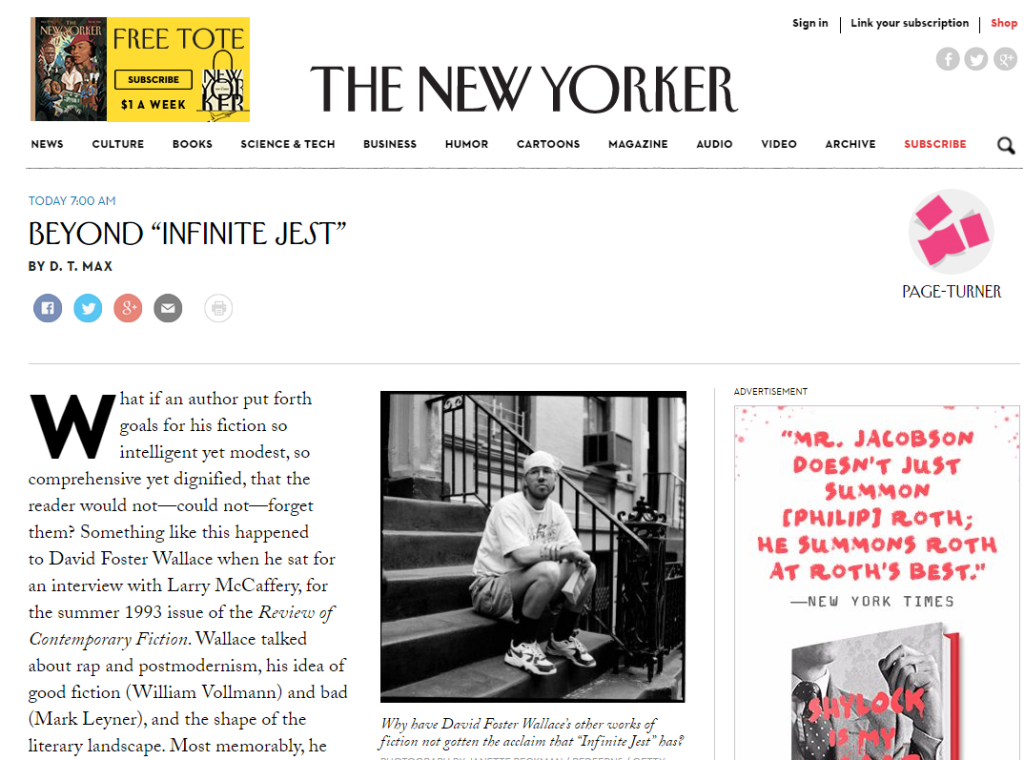
Over at Publishers Weekly, I interviewed author Laura Tillman about her new book The Long Shadow of Small Ghosts.
http://www.publishersweekly.com/pw/by-topic/authors/interviews/article/69409-scene-of-the-crime-pw-talks-with-laura-tillman.html
Posted: February 19th, 2016 | Author: Matt | Filed under: personal | Tags: clips, InfiniteJest, MEL, writing | No Comments »
For issue 3 of molossus, I reviewed Luis Felipe Fabre’s poems about Sor Juana.
http://www.molossus.co/the-long-story-of-bad-translations-on-luis-felipe-fabres-monsters/
I was intrigued by this book because I had seen Fabre’s name mentioned in a lot of prominent places but had not read his work. In fact, I saw somewhere on Twitter that Valeria Luiselli called Fabre the best contemporary poet in Mexico (or something along those lines).
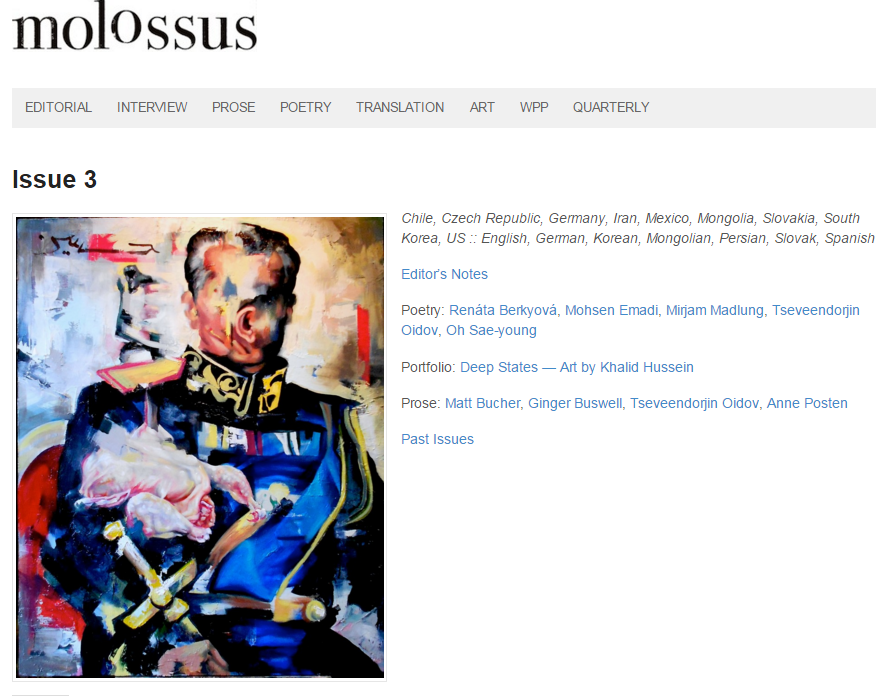
This week I wrote a piece of MEL magazine about job insecurity.
https://features.wearemel.com/company-loyalty-is-a-myth

I had a brief quote in this New Yorker piece about Infinite Jest.
http://www.newyorker.com/books/page-turner/beyond-infinite-jest

Posted: February 10th, 2016 | Author: Matt | Filed under: personal | Tags: clips, Fabre, Molossus, poetry | No Comments »
For issue 3 of molossus, I reviewed Luis Felipe Fabre’s poems about Sor Juana.
http://www.molossus.co/the-long-story-of-bad-translations-on-luis-felipe-fabres-monsters/
I was intrigued by this book because I had seen Fabre’s name mentioned in a lot of prominent places but had not read his work. In fact, saw somewhere on Twitter that Valeria Luiselli called Fabre the best contemporary poet in Mexico (or something along those lines).

Posted: January 15th, 2016 | Author: Matt | Filed under: DFW, personal | Tags: DaveLaird, DavidFosterWallace, GreatConcavity, podcast | No Comments »
I have yet to mention it here, but back in October of 2015, Dave Laird and I created a podcast centered around discussions of David Foster Wallace and his work. It’s called The Great Concavity and you can see our website here: http://greatconcavity.podbean.com/
You can also find us on iTunes with this link: https://itunes.apple.com/us/podcast/the-great-concavity/id1048764063?mt=2
We’ve posted six episodes so far and have a lot more in store for 2016. If you have a question about Wallace you’d like for us to answer, you can tweet at us @ConcavityShow.
Our logo comes from Robyn O’Neil’s incredible pencil drawing titled These final hours embrace at last; this is our ending, this is our past (2007).
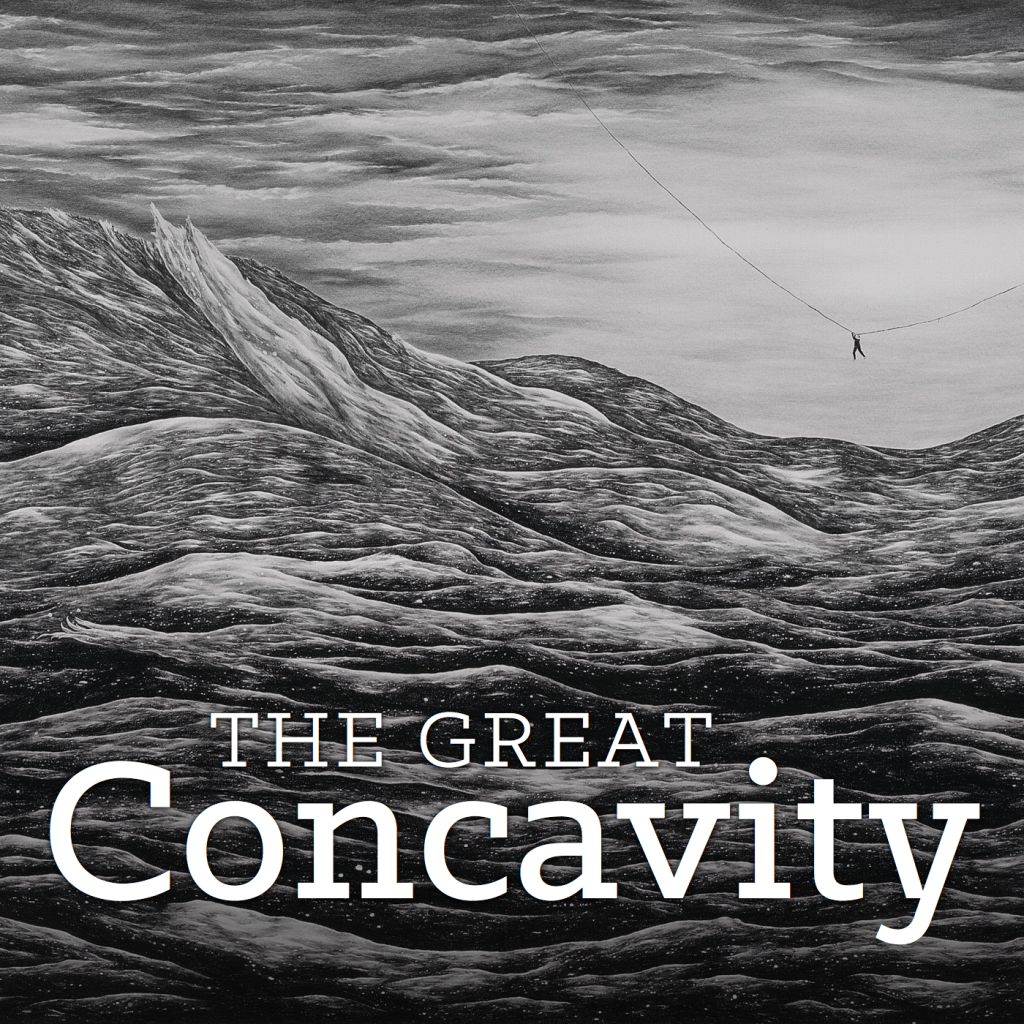
Posted: November 17th, 2015 | Author: Matt | Filed under: personal | Tags: Bucher, horses, legend, LeoSBucher, LSB, RTBucher | No Comments »
I’ve written about my great-grandfather in the past but I continue to research the stories about his life and try to see if there is any existing evidence to support some of the details of his life. There are still many questions I have but today would have been his 125th birthday and I wanted to document one of those stories.
On June 12, 1910, in Powersville, Missouri, Leo Steven Bucher was helping his soon-to-be adopted father R.T. Bucher wash their horses and buggy. They led the horses into the pond, wherein one of the horses laid down and got tangled up in the harness and eventually both horses drowned.

From his 1910 diary:
Drowned tow horses [two horses?] (Black) (One Horse & one mare). Drove in pond to wash wheels, horse laid down and pulled mare over him, got tangled in harness.
The next day, they buried the team of horses:
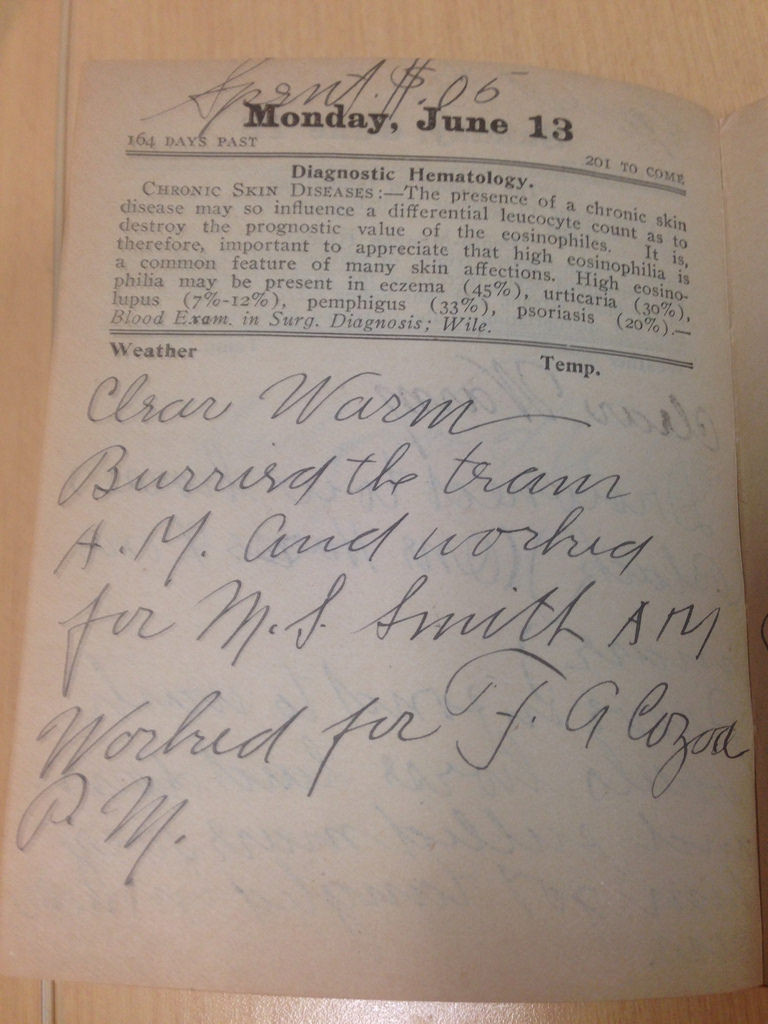
Amazingly, this story was picked up by the local newspaper, the Unionville Republican, and even ran as 10-years-ago item in 1920.
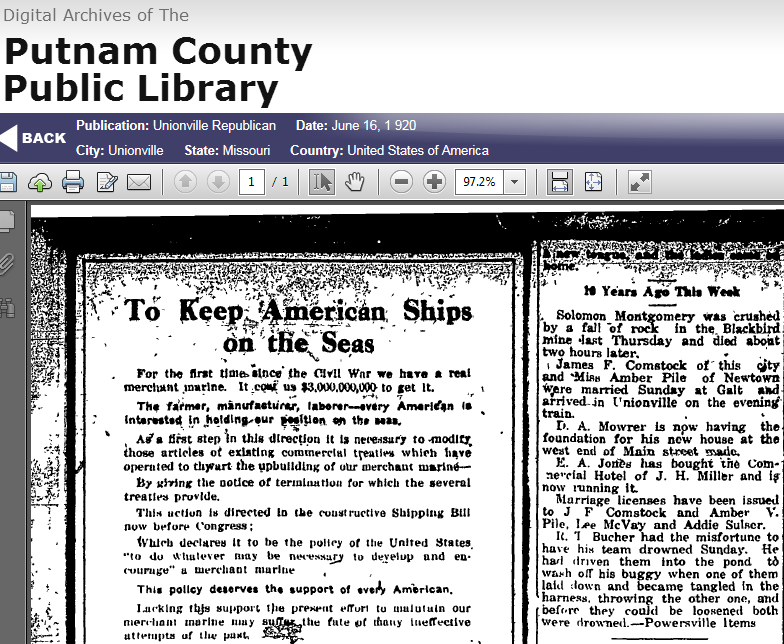
R.T. Bucher had the misfortune to have his team drowned Sunday. He had driven them into the pond to wash off his buggy when one of them laid down and became tangled in the harness, throwing the other one, and before they could be loosened, both were drowned.
In 1910, this was a very serious problem as a horse was the main mode of transportation and work. It was equivalent to losing both your cars and your tractor on the same day. In a time before insurance, it could be very expensive to replace two horses.
For some time, this story was told as an origin story – that R.T. and Alice Bucher had another son who drowned in a pond with some horses. The reality is much different. Leo Bucher was already living with the family by that point and might have even contributed to the drowning of the horses (since he states in his diary “Drowned two horses)). In fact, I can find no evidence that RT and Alice Bucher ever had any other children besides Leo, whom they adopted when he was 21 years old. It’s likely that they took him in because they were unable to have children of their own.
Posted: November 12th, 2015 | Author: Matt | Filed under: personal | Tags: books, Knausgaard, Lerner, markson, Minot, wallace | No Comments »
- Karl Ove Knausgaard, My Struggle, volume 4 paperback and volume 5 hardcover
I know the UK has Volume 4 in paperback but we don’t get the beautiful FSG edition until April 2016. Volume 5 comes out in hardcover around the same time. Keep working hard, Don Bartlett!

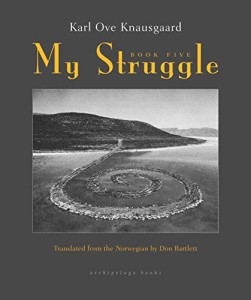
- The Hatred of Poetry by Ben Lerner (June, 2016) -Â In this inventive and lucid essay, Lerner takes the hatred of poetry as the starting point of his defense of the art.
- Anything by Eliza Minot
She hasn’t published a book in eight years. Hopefully she is working on something wonderful.
- David Hering’s book on Infinite Jest, forthcoming from Bloomsbury.
- Anything by Beth Nugent
She hasn’t published a book in almost 20 years, but a boy can dream.
- Understanding Roberto Bolaño by Ricardo Gutiérrez-Mouat due out next summer.
- A comprehensive, critical biography of either Roberto Bolaño or David Markson.
- My brother’s book! Master of The Cinematic Universe: The Secret Code to Writing In The New World of Media by John Bucher and Jeremy Casper, due out in 2016.
Posted: October 13th, 2015 | Author: Matt | Filed under: DFW, personal | Tags: bedfordavenue, braverman, brooklyn, clips, DFW, easternparkway, medium, paleking, personal, toniware, wesanderson, writing | No Comments »
I recently posted this article about Wes Anderson and Bye Bye Braverman over on simpleranger.net

One thing I didn’t mention there is that Braverman includes a scene filmed at the corner of Eastern Parkway and Bedford Avenue in Brooklyn. For a while, I lived a block north of there on Bedford. That intersection has changed a lot over the years so it was very cool to see it back in 1968.
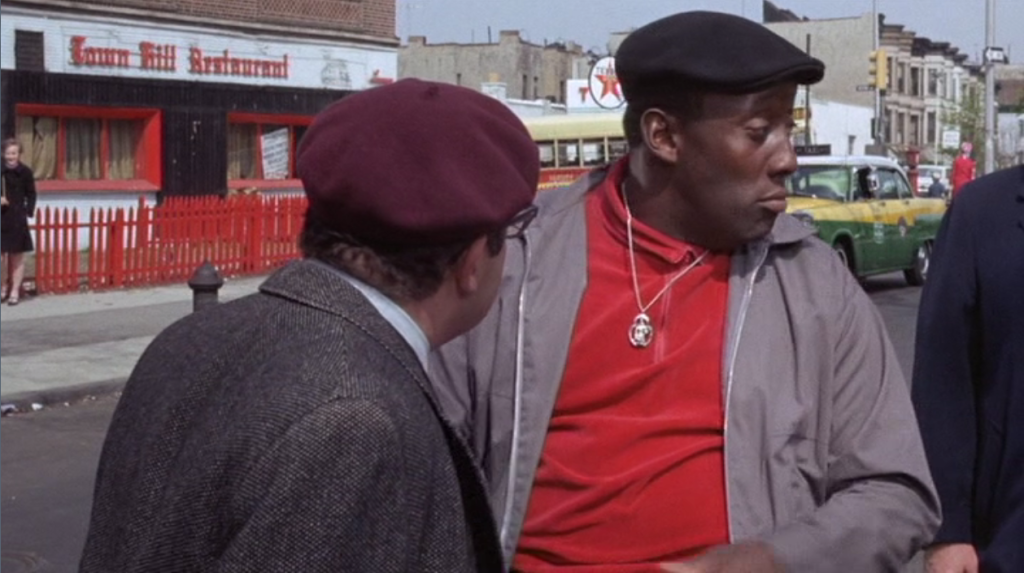
You can see the old Town Hill Restaurant in the background.
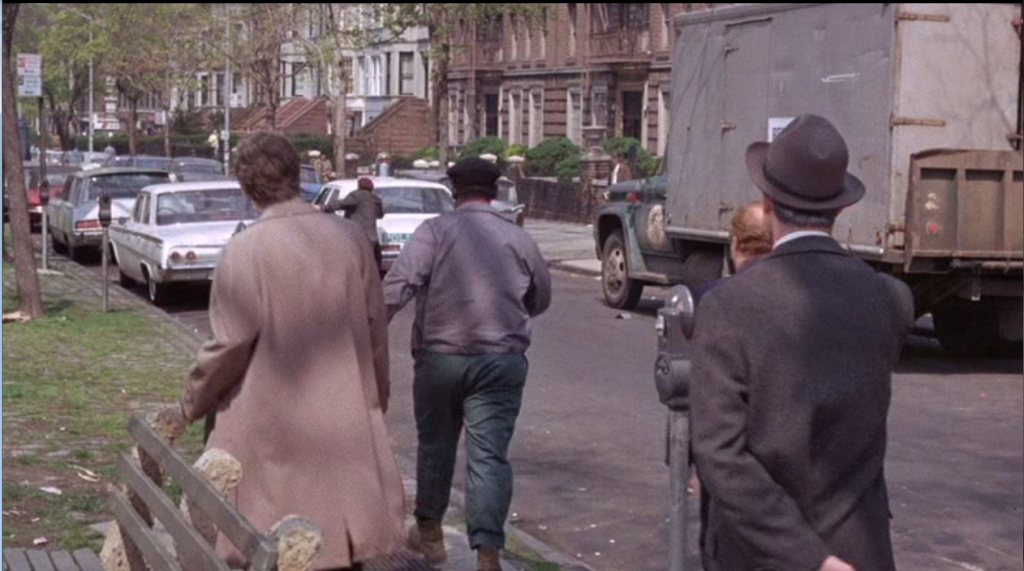
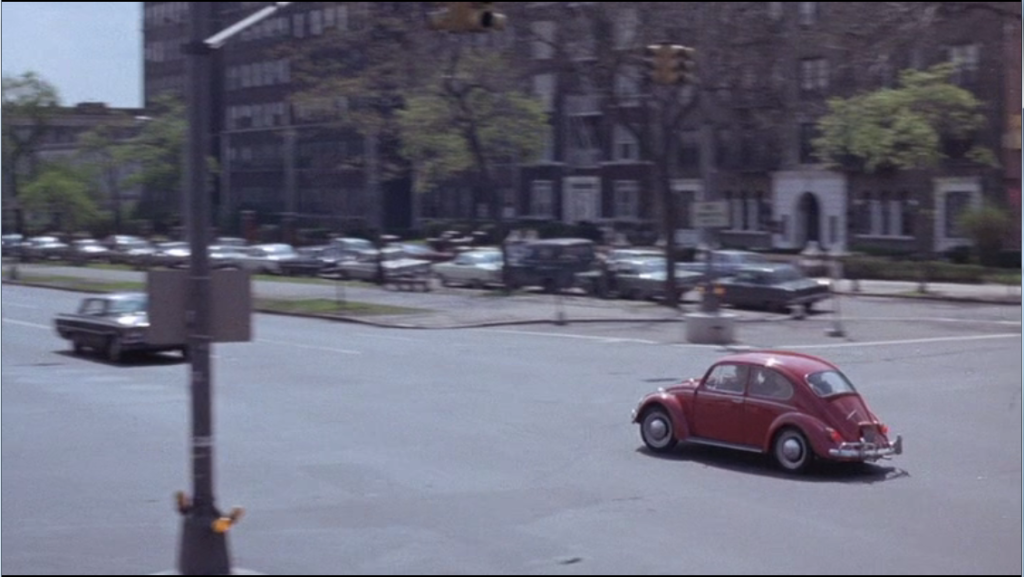
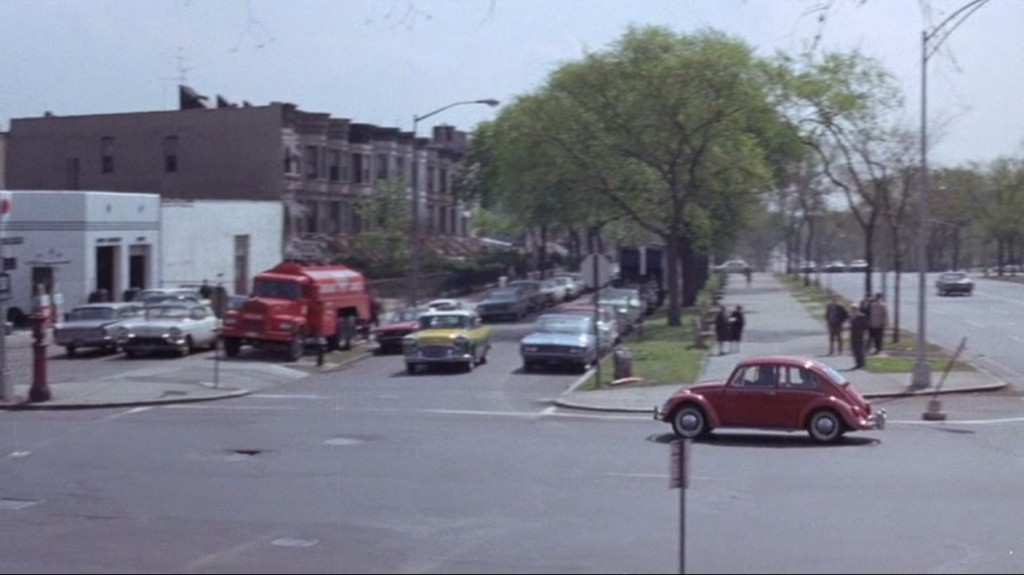
That Texaco station is long gone.
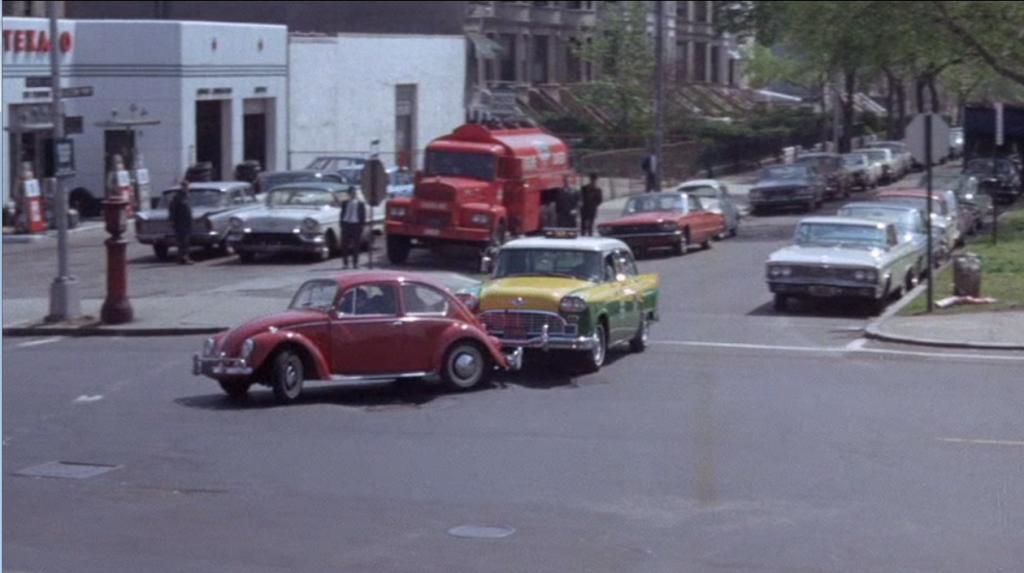
I also wrote about David Foster Wallace’s The Pale King and the character of Toni Ware over on Medium. The Pale King’s Trailer Park Queen.
Posted: August 17th, 2015 | Author: Matt | Filed under: personal | Tags: Bolano, books, clips, DavidFosterWallace, DavidMarkson, Scofield | No Comments »
A new literary magazine launches today and I’m happy to have contributed a small piece to it. The magazine is called The Scofield and my essay is on David Markson and Twitter. It’s a truly stellar magazine that has assembled a who’s who of writers working on and around David Markson. Keep an eye on The Scofield.
In other news, to support the film The End of the Tour, I wrote this article on “Why David Foster Wallace Matters” for a collection on Medium called “Just Words.”
Also, last month I published this essay on Roberto Bolaño and A Little Lumpen Novelita in the Dublin Review of Books.
Posted: July 21st, 2015 | Author: Matt | Filed under: Uncategorized | Tags: Collins, litdetective, PaulCollins | No Comments »
I first discovered Paul Collins via McSweeney’s and his imprint there: the Collins library, which is an odd assortment of out-of-print Victorian novels and other oddities. However, Collins’ own books are phenomenal, filled with some of the best nonfiction writing I have read, period. Collins has the ability to bring history to life and infuse it with his own personal perspective. I’m making it sound blander than it really is.  He appears on NPR Weekend Edition as its “literary detective” on odd old books. I don’t think Collins gets enough credit as one of the best essayists in the US. The feeling you get from reading his books is that he is genuinely curious about old things and deeply loves books. Here are three of his best books.
1. Banvard’s Folly: Thirteen Tales of People Who Didn’t Change the World
This collection of 13 mini-histories focuses on people who could have been great – but failed. Banvard’s story alone is incredible. He painted a mural that was to-scale panorama of the entire Mississippi River shoreline. Banvard produced shows on the scale of P.T. Barnum, but made one tragic folly.

2. Sixpence House: Lost in A Town Of Books
If you’ve ever dreamed of owning your own used book store or of going to the Hay-on-Wye Book Festival, this is your chance to live vicariously through Collins who up and moves to Hay.
![hay-on-wye-2[2]](http://www.mattbucher.com/wp-content/uploads/2015/07/hay-on-wye-22.jpg)
3. The Book of William: How Shakespeare’s First Folio Conquered the World
The First Folio is without a doubt the most valuable book in the world and yet most book lovers likely don’t know much about its genesis and history. It is one of the few books printed in the 1620s that still has a definitive history. This narrative is one of the best books about book collecting and Shakespeare’s world.

















![hay-on-wye-2[2]](http://www.mattbucher.com/wp-content/uploads/2015/07/hay-on-wye-22.jpg)
